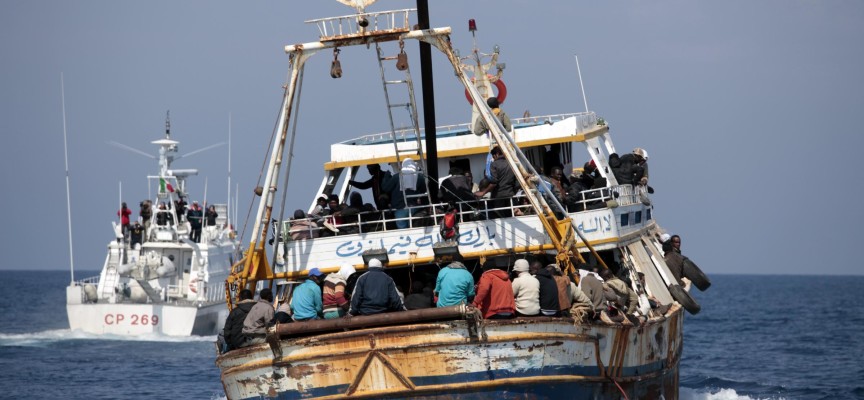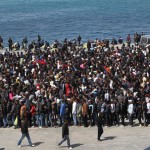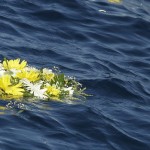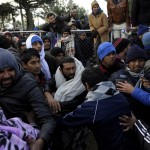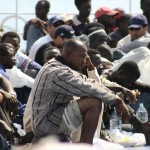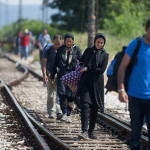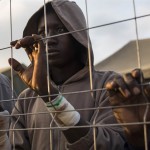While the European Commission has approved a set of measures that the European countries of the Mediterranean will be able to use to handle the emergencies of migration flows, the Scalabrinian Missionaries, even if noting a first positive sign, fail to share fully the announcement of the vice president of EU executive and representative for foreign affairs, Federica Mogherini, who stressed that “in the face of a dramatic emergency” Europe has “finally realized the urgency,” and in recent times has “made great strides” towards a “comprehensive response” to the challenges taking place in the Mediterranean.
“Men and women like us” who seek happiness, reminded Pope Francis less than a month ago, after the worst tragedy in the history of immigration in the Mediterranean, with the disappearance in the Libyan waters of a fishing vessel with about 800 people. “Who leaves his country out of despair is willing to risk even his life, just to see recognized the right to a life worthy of this name, because too often his homeland does not give anything more”. So says Alexander P. Gazzola, superior general of the Congregation of the Missionaries of St. Charles – Scalabrinians, after learning of the approval by the EU Commission of an agenda for a new immigration policy which should arrive on the table of the European Summit on 25th and 26th of June.
“If we have to talk in these terms, then it is urgent that all the nations in the union, and not just a few as it is outlining at the horizon, put on the agenda first of all the whole human person with the baggage of full and long lasting recognition of the basic rights “. He adds: “The distancing of nations such as the UK, Denmark and Ireland, or the continuous export of weapons aimed at entertaining good neighbourly relations with some governments, simply guarantees other deadly structures, in the name of the oppression of peoples, forcing them to flight as the only hope of survival. ”
His words were echoed by P. Gianni Borin, superior of the European and African region, noting that “next to a shy applause because something has finally been set in motion, attention has to be focused on the many people who are already in several countries of the Union, highlighting the various good practices already in action”.
The lesson of humanity that associations, movements and religious communities are giving in managing the emergency of the many asylum seekers shows more and more the effort to carry out a second step, necessary, outside the structures of first care, in order to conduct asylum seekers and refugees to full autonomy. “It is necessary to act together to build a local community capable of welcoming, including and integrating differences through the responsible and participatory internalization of what I would call the culture of encounter” concluded P. Borin.
Mentre la Commissione Ue ha approvato un insieme di misure che i Paesi europei del Mediterraneo potranno utilizzare per gestire le emergenze dei flussi migratori, i missionari scalabriniani, pur notando un primo segno positivo, non riescono a condividere appieno l’annuncio della vicepresidente dell’esecutivo Ue e rappresentante per gli Affari esteri, Federica Mogherini, che ha sottolineato come “di fronte a un’emergenza drammatica” l’Europa abbia “finalmente capito l’urgenza” e negli ultimi tempi abbia “compiuto passi da gigante” verso una “risposta globale” alle sfide in atto nel Mediterraneo.
“Uomini e donne come noi” che cercano la felicità, ha ricordato papa Francesco meno di un mese fa, dopo la più grave tragedia nella storia dell’immigrazione nel Mediterraneo, con la scomparsa tra le acque libiche di un peschereccio con circa 800 persone. “Chi parte per disperazione è disposto a rischiare anche la vita, pur di vedere riconosciuto il diritto a una vita degna di questo nome, dal momento che troppo spesso la patria non da più nulla”. Così si esprime p. Alessandro Gazzola, superiore generale della Congregazione dei Missionari di San Carlo – Scalabriniani, dopo aver appreso dell’approvazione da parte della Commissione Ue dell’agenda per una nuova politica dell’immigrazione che dovrebbe arrivare sul tavolo del Vertice europeo del 25 e 26 giugno.
“Se dobbiamo parlare in questi termini, allora è urgente che tutti i Paesi dell’unione, e non solo alcuni come si profila all’orizzonte, mettano in agenda prima di tutto la persona umana con il bagaglio di riconoscimento pieno e duraturo dei diritti più basilari”. Ed aggiunge: “Il defilarsi di nazioni come Regno Unito, Danimarca e Irlanda, o la continuativa esportazione di armi finalizzata ad intrattenere relazioni di buon vicinato con alcuni Governi, non fa che “garantire” altre strutture mortifere, all’insegna dell’oppressione di popoli, obbligando alla fuga come unica speranza di sopravvivenza”.
Gli fa eco p. Gianni Borin, superiore della regione europea e africana, evidenziando che “accanto ad un timido plauso perché qualcosa si è finalmente messo in moto, l’attenzione deve focalizzarsi anche sule tante persone che già si trovano in diversi Paesi dell’Unione, evidenziando le diverse buone pratiche in atto”.
La lezione di umanità che associazioni, movimenti e comunità religiose stanno dando nel gestire l’emergenza dei numerosi richiedenti asilo mostra sempre più lo sforzo di compiere un secondo passo, necessario, al di fuori delle strutture di prima accoglienza, al fine di condurre i richiedenti asilo e i rifugiati alla piena autonomia. “Si tratta di agire concordemente per costruire una comunità locale capace di accogliere, includere e integrare le diversità attraverso l’interiorizzazione responsabile e partecipativa di quella che chiamerei la cultura dell’incontro”, conclude padre Borin.
Latest posts by EURCOM (see all)
- What are the aims of the European security and defence policy? - 12 aprile 2017
- The Church is for the European project - 28 marzo 2017
- A message for Europe - 28 marzo 2017

